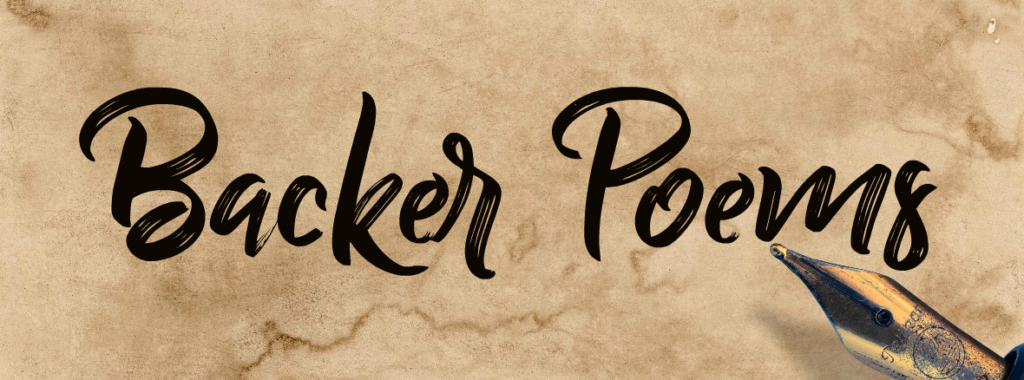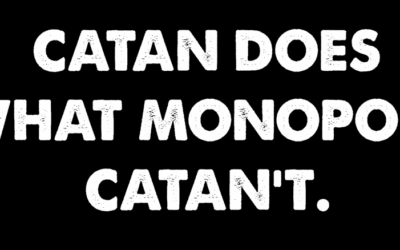Carcassonne! It’s the tile-laying juggernaut that kicked off so many board game enthusiasts’ passion for the hobby. What’s so great about it? What’s not-so-great about it? Watch me break it down in this Find the Fun video:
Carcassonne is a two to five player tile placement board game from 2000 by designer Klaus-Jürgen Wrede. i’m Ryan from Nights Around a table. Let’s Find the Fun! Fun: it’s easy to learn, it’s easy to teach, and it’s easy to set up. You just shuffle a big stack of tiles give everyone their meeples, and you’re off to the races. Not fun: memorization is required for A+ top-level play. Now this is a flaw of any tile placement game – you take Scrabble, you take dominoes… i mean, at least Scrabble has a little key on the side that tells you which tiles are in the deck at which frequency. With Carcassonne, you don’t have a key to show you what’s in the stack, so you could be waiting for a really particular piece, like – i dunno – a three-walled city that has a road going in just at a corner, and maybe that tile doesn’t exist in the stack and maybe you don’t know that because you’ve only played the game once or twice or 25 times and that’s not enough to have memorized every single tile in the entire stack. i mean, i remember playing with people where i told them “Oh, i’m just waiting for this specific piece that has a road that goes in this way,” and they said “Nnnnnuhh… that’s not really in the deck. You’re gonna be waiting a long time,” and that was kind of a bummer. So, you know, dominoes has the same problem. A lot of tile laying games – if you don’t have the entire deck memorized and you know the whole possibility space and the probability of different things coming up, you really can’t play at a high level. i don’t like memorizing things. i don’t have a very good memory to begin with, so that’s really not my bag. Fun: seating orientation doesn’t matter. i get kind of bummed by board games where you have new players, and only one person actually gets to see everything upright because that’s how the board is oriented. Now, i know not all board games can be this way, but at least with Carcassonne, anybody can sit anywhere around the table and nobody has sort of an advantage or disadvantage having to read upside down, because there’s no writing to read. Not fun: lack of control. The thing that all of my favorite modern board games have in common is that they give you a big decision space. You’ve got a lot of options of things to do and things to think about, and Carcassonne doesn’t really have that. All you’re doing is pulling a tile off the top of the stack and sticking it on the table. Sometimes that benefits you, sometimes it doesn’t. Often, it doesn’t. There’s just no good place to put that tile where you can really figure out a good scoring opportunity for it, so there’s not a lot that you can really think about. And if you look at strategy versus tactics, if strategy is sort of like your long game goal and your planning, and tactics is really in the moment, Carcassonne is a really tactical game. There’s not a whole lot you can do to plan. i mean, you can build out corners of the city hoping to connect them later but, i mean, that’s all down to hope. It’s a very tactical game in that your decision comes right at the moment when you pull that tile off the stack, and the tile that you pull determines entirely what you can do. i think perhaps a good gameplay innovation with Carcassonne would be to add a rule where you pull three tiles off the top of the stack and pick one, and maybe sink the other two to the bottom, and then that would overcome a memorization problem that the game has because then all players would sort of get a sense of which tiles are available in that stack, and which tiles may be coming up, so that they can gear their scoring opportunities towards what’s – you know – filtering through that stack. Fun: scoring is secret and ever-changing. i’d go so far as to call it, maybe, “swingy.” i don’t really enjoy board games where you can have one person with a runaway score and you have no sense that you could ever catch up to them. You look at the things they’re able to do in the game and you think “There’s no way i’m closing that thirty point gap.” With Carcassonne, there’s always a chance that you might be able to lay that tile to connect maybe a couple of cities together and integrate yourself into a better scoring position. You always hold out hope that maybe you can catch up to the score leader. Also you, don’t even know the score unless you do a mental math survey of what’s going on in the game, so it’s kind of nice that way. Not fun: the expansions. Now this might seem a really unfair point. i really should be reviewing the game on its own, but the popularity of Carcassonne led to a whole slew of expansions. There’s princesses and there’s bridge builders and inn keepers and there’s dragons all kinds of crazy stuff. If you want to take a really simple game like Carcassonne and have a really lousy time with it, pick up two to three of these expansions and add them to the game. Suddenly, the game is taking hours when it could have taken half an hour or 40 minutes, and you’re really not having a lot of fun in my experience. i’ve played a game of Carcassonne where we threw in – i don’t know – 20, 30… 80 expansions, whatever it was – and it was just a SLOG, and nobody was enjoying it. Fun: this doesn’t really have a lot to do with the game, but it’s kind of fun when you find out that Carcassonne is a real city in the real world, and it’s neat to see pictures of the place and to see how faithfully they’ve reproduced it on the tiles in the game. And if you want to go for super nerdy fun, you’ll go to Carcassonne and you’ll bring your copy of Carcassonne and play it there, which a bunch of enterprising geeks have done. Not fun: kingmaking. Kingmaking is a term in board games that means one player can make a decision that doesn’t benefit or hurt them. It actually benefits or disadvantages another player to the point where that player can either, by their actions, make somebody else lose or, more importantly, make somebody else the winner, and and not affect their own game at all. And that’s really unfair for the – you know – the people involved, both the person who’s artificially made the winner, and the person who artificially loses because of this person’s decisions. So Carcassonne potentially has kingmaking in spades. You pull that tile off the top, and maybe it doesn’t benefit you? Oftentimes, it doesn’t. You can just lay it down in such a way that maybe even inadvertently you give the score leader an amazing opportunity to score. This is why i don’t play Scrabble with more than one person. So Scrabble is also a tile laying game, and it suffers some of the same problems that most tile-laying games i’ve played suffer. So i could be playing Scrabble across the table from you, and we could be very good competitors, and we could be – you know – neck-and-neck with scores, and we’re – you know – we’re really tightly controlling the board and everything’s going well, and then this dingus to my left opens up a triple word score for you, and enables you to pull down all kinds of points. i never would have given you that scoring opportunity, because i’m a good player, but this guy’s brand-new to the game, or he didn’t realize, or he’s a bad player, and i think it’s really unfortunate when a game is structured such that one player can really boob it up and affect somebody else’s game, and they really had nothing to do with it. So let’s Find the Fun in Carcassonne, where Fun is represented by Dr. Pepper, and Not Fun is represented by pepper. Why couldn’t you go to school and get a degree like your brother?? Carcassonne is… not fun! Before the flood of angry letters and emails, let me explain: Carcassonne was once fun. And it might not seem fair to compare it to other things now, but that was the deal. i consider it one of the Holy Trinity of gateway games when i was getting into modern board gaming, along with the Settlers of Catan and Ticket to Ride, and at the time, the only thing i had to compare against were things like Parker Brothers drivel like Monopoly and Sorry! – games that didn’t involve a whole lot of choice and decision and enjoyability. So at that time, in 2000, or when i picked it up, probably 2003, Carcassonne was a relative blast. But relative is the key word. Now, the cool thing about games is that they keep evolving, and designers keep coming up with more and more fun ways to entertain people at the game table. If you look at Carcassonne compared to things that are coming out now, i just… i look at my collection, and Carcassonne is probably the 100th game on my list that i would play if i go to reach for something. The only reason it’s still in my collection is because i keep it around as sort of like a like an homage, or out of respect, maybe. It’s kind of like on Remembrance Day here in Canada when we honor our war veterans, when they they troll out that 96 year old – you know – highly decorated former general to lay a wreath on the Cenotaph. i mean, that’s great. We can pay our respects… but we’re not sending that guy into active combat. So for the reasons i explained, tile laying i think is just not my bag at all. There are a number of other tile laying games that i’ve played that i really haven’t enjoyed, and it goes back to that Scrabble reason i mentioned. It’s to the point now that when a game comes out and i think “Oh, that looks interesting,” i’ll actually go to BoardGameGeek, and they list the different game mechanics involved in the game, and if tile laying is one of them, i’m no longer interested in the game. It’s just not a mechanic that i find enjoyable or interesting. So! My opinion. Carcassonne: once fun, no longer fun. Fight me in the comments! Did you just watch that whole thing? Oh – hey! To 100% this video, click the badge to subscribe, and then click the bell to get notifications when i’ve got new stuff [Music]
Get Your Own Copy of Carcassonne
Many board game collectors would agree that Carcassonne absolutely deserves a place in your collection. Use the Amazon link below to shop for your own copy, and i’ll receive a small commission.






